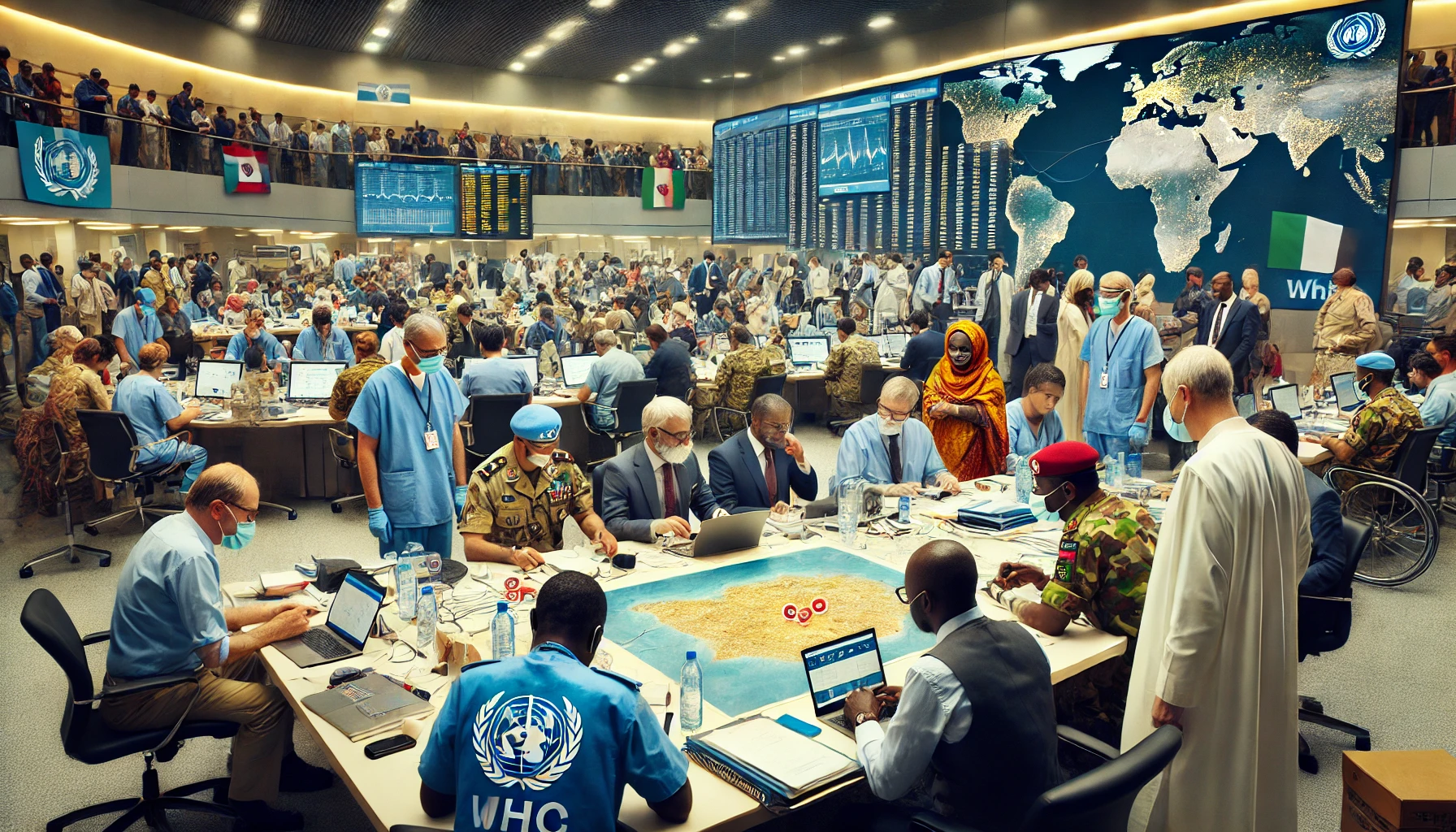Cameroon Strengthens Mass Casualty Preparedness Through WHO Academy Training in France
Healthcare Professionals Gain Life-Saving Skills to Respond to Emergencies Following Past Tragedies.

On January 24, 2022, a tragic stampede at the Olembe Stadium in Yaoundé during the Cameroon-Comoros Africa Cup of Nations football match left an indelible mark on many lives. Among the victims was Véronique, who tragically succumbed to injuries, while her friend Vanessa Tchouanzi narrowly escaped with her life. The disaster claimed eight lives and injured around 50 people, overwhelming local hospitals unprepared for such a sudden influx of casualties.
This tragedy highlighted the urgent need for improved preparedness for mass casualty emergencies in Cameroon. To address this critical gap, ten healthcare professionals from Cameroon attended a World Health Organization (WHO) Academy training course on mass casualty management in Lyon, France, from May 15 to 17, 2024.
Learning from Tragedy: A Push for Preparedness
Reflecting on the 2022 incident, Dr. Tania Bissouma-Ledjou, Health Planning Advisor at the WHO Cameroon Country Office, emphasized the importance of readiness: "The events at the stadium served as a stark reminder of the importance of preparedness for mass casualty incidents. The recent training equips our healthcare professionals with the knowledge and skills to respond more effectively to future emergencies."
Although Cameroon has organized capacity-building sessions with simulations in various regions, this is the first time a team from diverse healthcare structures, including the Emergency Center of Yaoundé, Yaoundé Central Hospital, Soa District Hospital, and the WHO, collaborated internationally. Partnering with the Nice University Teaching Hospital in France, the team participated in an immersive training experience facilitated by the WHO Academy.
Comprehensive Training for Critical Situations
The WHO Academy’s mass casualty management course targets healthcare professionals working in emergency departments, often the frontline responders during crises. The training is built on key principles, including:
- Triage and Zone Management: Establishing and managing triage, green zones, and red zones effectively.
- Role Assignments: Clarifying responsibilities within the response team for seamless coordination.
- Utilizing Resources: Developing and implementing checklists and mass casualty management plans.
Participants engaged in interactive sessions, reviewed existing protocols, and developed hospital-specific plans. A highlight of the course was a simulation exercise at the Departmental Fire and Rescue Service (SMDIS) in Saint-Priest, France. In this scenario, participants managed a simulated influx of over 50 casualties within 45 minutes, conducting triage and activating treatment zones.
Dr. David Mekolo shared his insights: “The hands-on exercises and simulations provided a realistic experience that will enhance our ability to respond effectively to mass casualty incidents.”
Intercultural Collaboration for Better Outcomes
The training also facilitated knowledge exchange between Cameroonian participants and healthcare professionals from France. This collaboration allowed for the sharing of best practices, fostering an understanding of diverse healthcare systems and approaches to emergency response.
Dr. Louis Joss Bitang, Director of the Yaoundé Emergency Center, remarked on the value of the experience: "The simulation allowed us to identify gaps, refine strategies, and build confidence in our response capabilities. There is an urgent need to revise existing plans and locate resources for effective action."
Building Resilient Healthcare Systems
Beyond technical expertise, the training underscores the WHO Academy’s commitment to strengthening global healthcare resilience. By equipping professionals with practical skills, the initiative empowers healthcare systems to save lives and mitigate the impact of mass casualty events.
"We thank the WHO Academy for its dedication to bolstering response capabilities for mass casualty incidents," concluded Dr. Bitang. "This training is an investment in the future, enabling us to strengthen the resilience of Cameroon’s healthcare systems and protect communities from the devastating impact of such emergencies."
Looking Ahead: Preparedness for Future Challenges
As Cameroon continues to enhance its healthcare systems, the lessons learned from past tragedies and international collaborations serve as a foundation for progress. Initiatives like these reaffirm the critical need for preparedness and the shared responsibility of global partners to address healthcare challenges, ensuring no life is lost to preventable emergencies.
- READ MORE ON:
- Cameroon
- France
- WHO Academy Training










